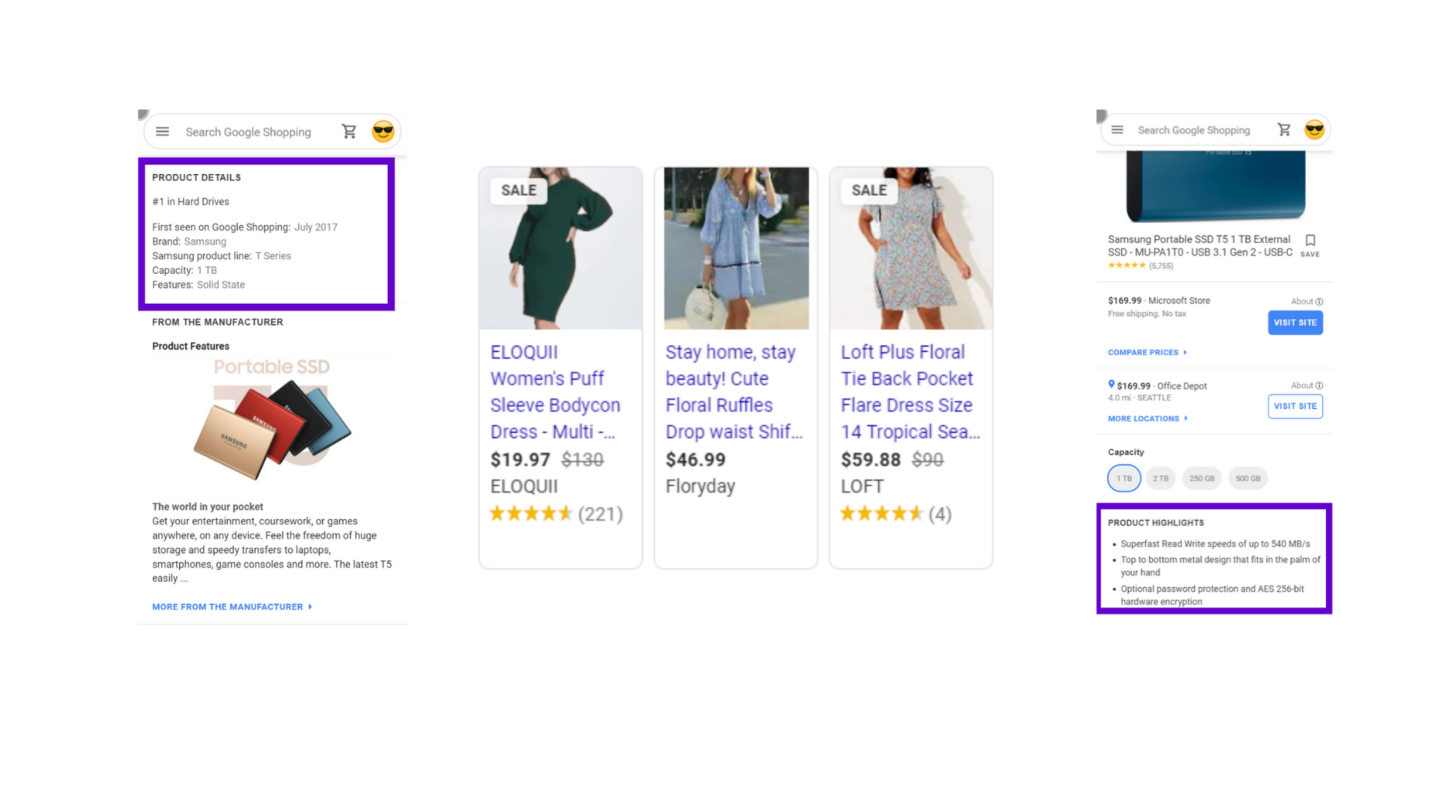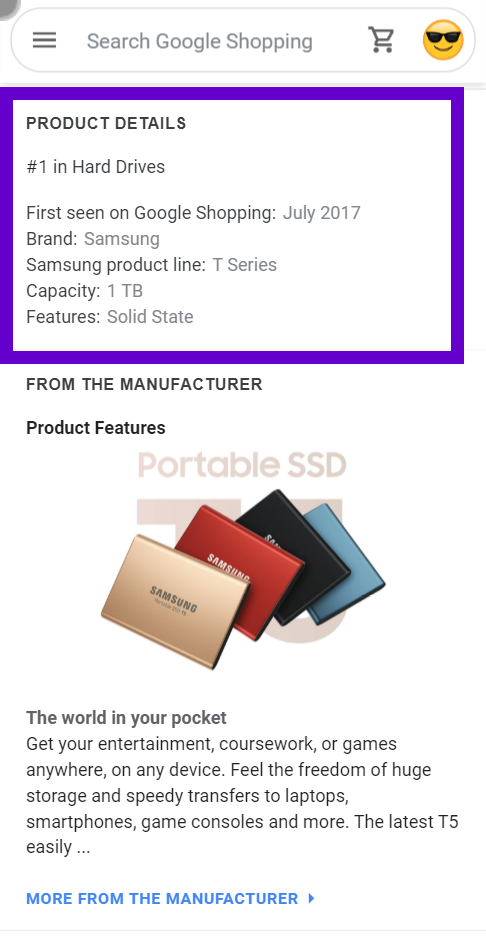2020 Merchant Center Product Feed Updates: What You Should Know

Google recently announced some exciting enhancements and requirements for Shopping product feeds submitted through the Google Merchant Center.
The new updates come as a time when Google’s product feed is becoming increasingly important for retail brands; it’s the foundation for Shopping ads, the new unpaid Shopping listings, Google Shopping Actions marketplace units, and feed-based dynamic retargeting ads on the Google Display Network.
Here’s an overview of Google’s Merchant Center changes for 2020, how they impact Shopping advertisers, and what you should do to prepare.
The product_detail attribute and the product_highlight attributes are the most significant enhancements in this update, and both are available now.
These have been included in Google’s Shopping Actions marketplace for a while now, as seen below.

The Product Detail attribute utilizes readable, structured data, and it is designed to help Google more accurately match search queries with products relevant to those search queries.
Google explicitly mentions technical details for items like computers/phones/laptops/TVs. But they also provide examples for non-technical items like cosmetics and furniture.

As more advertisers submit this optional attribute, the new details should help Google improve ad relevance.
As an example, perhaps a merchant sells laptops and Google shows their laptop ads for queries about gaming PCs. This new attribute will be another way Google can ensure that they show the right product for the right query.
The Product Highlight attribute is the most stylistically significant attribute Google has introduced.
This is the closest thing to having traditional ad copy for Shopping ads since Merchant Promotions were first introduced. It also closely resembles the quick, concise, descriptive bullet point formatting that you’d see on the Amazon marketplace.

Product Highlights allow you to provide short, bulleted lists of features for your product (ex. “Supports iOS, Mac OS, Windows, Chrome OS, and Android devices”).
You can use these lists to call out what makes your product special. Sure, your product title of “Striped Short-Sleeve Pocket V-Neck Tee” isn’t too bad, but don’t you want consumers to know that it’s made with NASA-grade polyester?
“Product highlights will be an interesting new area to manage within the Google Shopping ecosystem. Bullet points have been a common practice in managing Amazon for years so it’s interesting to see Google bring this feature to their Shopping program as they inch closer to parity with Amazon. Customers will like this new feature and advertisers who use the feature will see higher clickthrough rates.”

— Mike Wojciechowski, Senior Director of Shopping and Feed at Tinuiti
The last immediate change that Google announced was that they are relaxing the requirements for sale price annotations.
For the sale price annotation to show, a higher price (usually the base price) must have been charged for a period of at least 30 non-consecutive days in the past 200 days. If you’re struggling to get approved for Google Merchant Promotions, this is another alternative to let consumers know that your product is on sale.
The best part about this feature: Google does all the heavy lifting for you. There’s no need to worry about setting anything up here on the retailer side.


There were also a few more changes announced that will begin starting September 1st, 2020:
Google is becoming more strict about requirements for specific Google product categories.
Certain subcategories, like Media and Apparel & Accessories, require additional unique product identifiers, such as gender or age_group. While your products won’t be disapproved if these unique product identifiers aren’t provided, performance for those products could be limited.
There is going to be increased emphasis on the description attribute of products.
Google indicates that while the description is required for all products, products that do not have a description will still serve but may have limited performance and be prioritized after similar products that do have a product description.
In both cases here, Google is taking steps to protect Google Shopping’s integrity. Launching their unpaid Shopping listings has brought more merchants to the platform and will continue to bring more merchants. Google is making it clear, though, that their platform will still prioritize and reward merchants that submit clean, up to date, and reliable data.
Are you interested in learning more about these features? Need help getting set up to take advantage of them for the growth of your business?
Reach out to find out how our Shopping & Feed management team can help you get started.
